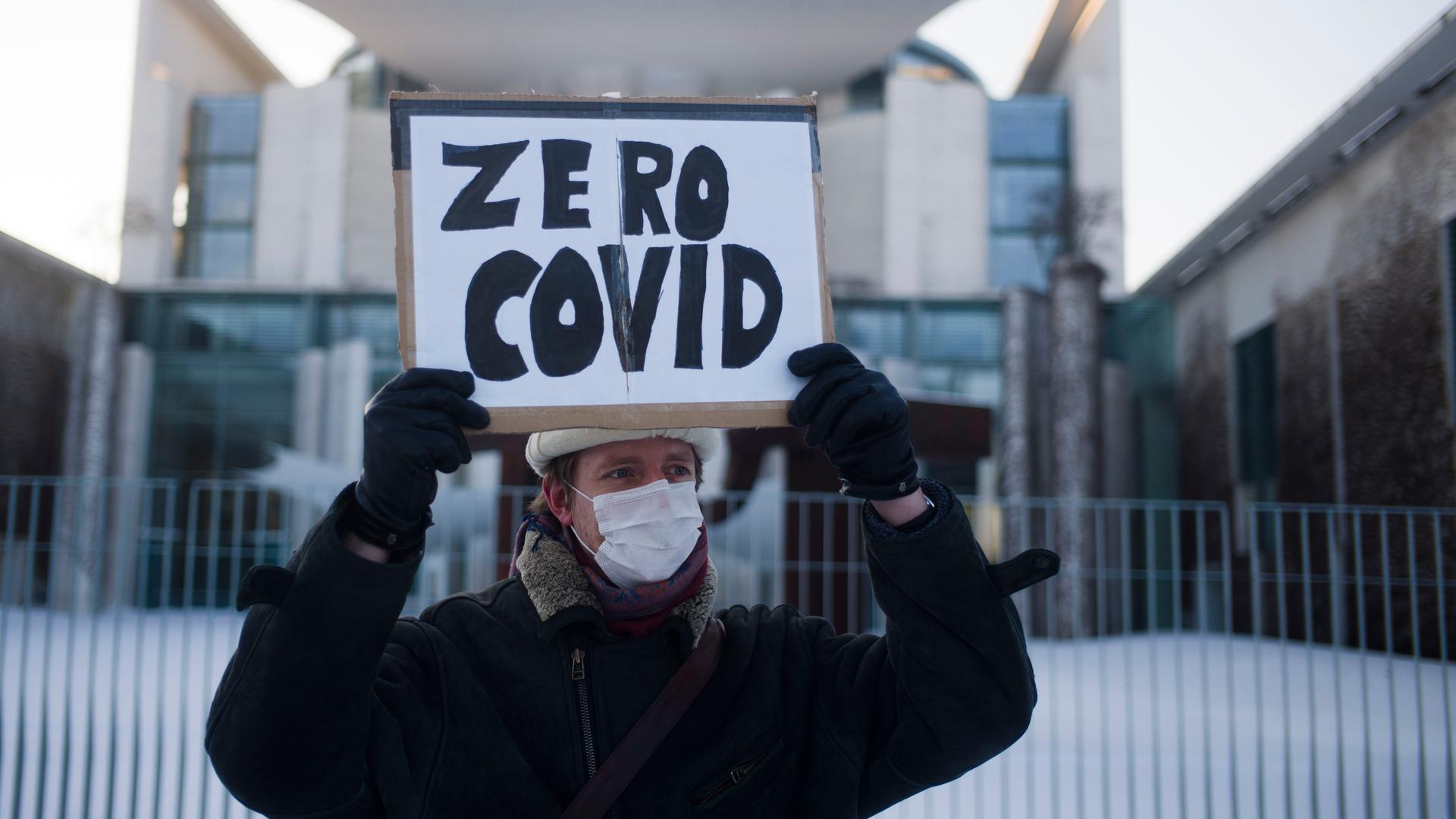You know that feeling when you check your calendar and realize with dread that you have back-to-back Zoom calls lined up for the rest of the day?
Turns out, there’s a German word for that: overzoomed.
Related: France launches citizens’ collective to tackle vaccine skepticism
That’s just one of many new German words created over the last year to describe what it’s like to live during a pandemic. All have been collected by the Leibniz Institute for the German Language in Mannheim, which has cataloged a staggering 1,200 new words over the past year, far more than the 200 or so they would normally see.
Christine Möhrs, a researcher at the Leibniz Institute, says the German language lends itself well to coining new phrases because it allows for multiple nouns to be pushed together to create compound words.
“German is one of the, I would say, kings of building compounds,” Möhrs told The World, pointing to examples like anderthalbmetergesellschaft, or “1 1/2-meter society,” to refer to social distancing.
Related: Wary of coronavirus vaccines, some Chinese citizens are ‘opting out’
“We have such mechanisms in our language to smoosh words together,” she explained.
As the lived experience of the pandemic has changed, so, too, has the vocabulary. One example of this is the new slate of words that have cropped up around the experience of getting vaccinated (or trying to get vaccinated). Möhrs points to words like impfneid, a feeling of resentment that other people are getting vaccinated before you, and impfdrängler, or a person who has gone against the government’s strategy and been vaccinated before others with higher priority.
“They are words that show that the mood of the population is quite charged, and many are — we have another word — ‘corona tired,’ [or] coronamüde,” Möhrs said.
Möhrs says that putting a name on the new and unfamiliar is an “important human mechanism,” one that helps people better understand the world — and communicate with each other — especially in times of crisis.
“All of these words help us, I think, to describe our culture and our society at the moment and to give a picture of what’s happened at this particular time,” she said.
“Perhaps we can understand the world a little better when we have those words and describe our situation, our life, with the help of our language,” she added.
